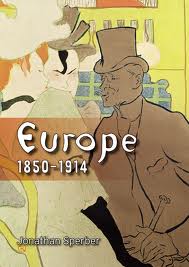The Rise of the Nation-State
- Political leaders driven to consolidate power
- By 1871 the process of consolidation and unification had created modern Germany and Italy, altering the balance of power

- The struggle between states for land and wealth occurred primarily outside Europe through imperialism
- The process of expanding a nation’s territory through the acquisition of colonies and dependencies.
- The ideology of nationalism linked the individuals identity with the state, connecting his/her sense of pride, prestige and power with the internal and external strength of the nation.
- Success of a nation did not depend upon national sentiment, but political leaders had to be able to harness the power of the people’s pride in the state in pursuit of national objectives.
- What is an example of political leaders attempting to harness the people’s pride to pursue an objective?
Louis Napoleon Bonaparte
- No longer a monarchy, but a republic.
- A state in which supreme power is held by the people or its elected representatives and not by a monarch
- Ruled as president from 1848-1852
- As emperor as Napoleon III from 1852-1870 during the time of prosperity in which Paris was restored as the diplomatic and cultural capital Europe
- Ended in disaster
Louis Napoleon Bonaparte III (1808-1873)
- Prussia overwhelming victory over France in 1870 brought Napoleon III and has Second Empire to an end
- Resulted in modern Germany as the dominant power in Central Europe
- On Dec. 1-2 1871, the army occupied Paris and the police arrested 78 National Assembly deputies
- Army killed 200 rioters on Dec. 4, while suppressing a left wing uprising in Paris.
- During the rule of Napoleon III, the French populace seemed content of democracy.
- The economy was prosperous, as the boom in railroad construction had a multiplier effect that stimulated French industries and generated employment
- Created “Credit Mobilier”, an investment trust in which citizens deposited savings, which in turn financed industrial development
- What does that resemble today?
- By 1860, financial scandals, dissent over foreign policy and reawakened political criticism
- Napoleon responded by liberalizing reforms that:
- relaxed controls on the press,
- allowed freer debate in legislative assembly,
- made ministers more responsible to elected representatives,
- reduced the influence of the church on education,
- made schools more accessible to females and
- legalized trade unions and the right to strike.
Modern Germany: The Role of Key Individuals
- From 1815-1848, liberal nationalists dreamed of the creation of a unified Germany under a liberal constitution
- Significant political obstacles
- German confederation of 1815 brought together 39 states, including the larger and more powerful Prussia and Austria
- purpose of the confederation was not to unite German states but to preserve the existing political structure of small states ruled by absolutist
- Economic and social development had begun to break down some of the divisions between Prussia and Austria
- 1834, customs union, brought the northern German states, including Prussia but excluding Austria, into a closer economic association.
- “Greater Germans” are those who favoured the inclusion of Austria, were drawn largely from southern Catholic regions
- “Lesser Germans” are those who favoured the exclusion of Austria and looked to Prussian leadership, were drawn largely from northern Protestant areas
Britain 1867-1894
- Mid-1860, the issue of the voting and the question of when, by whom and to whom
- Throughout the second half of the first nineteenth century, Britain witness a struggle between the forces of change.
- Social reform and the forces of continuity, in support for the monarchy and other conservative traditions
- Gladstone won the electorate campaign in 1880 and gave his liberals a majority
- Lord Salisbury became the dominate party in Britain for the next two decades due to Gladstone’s Irish Home Rule bill
